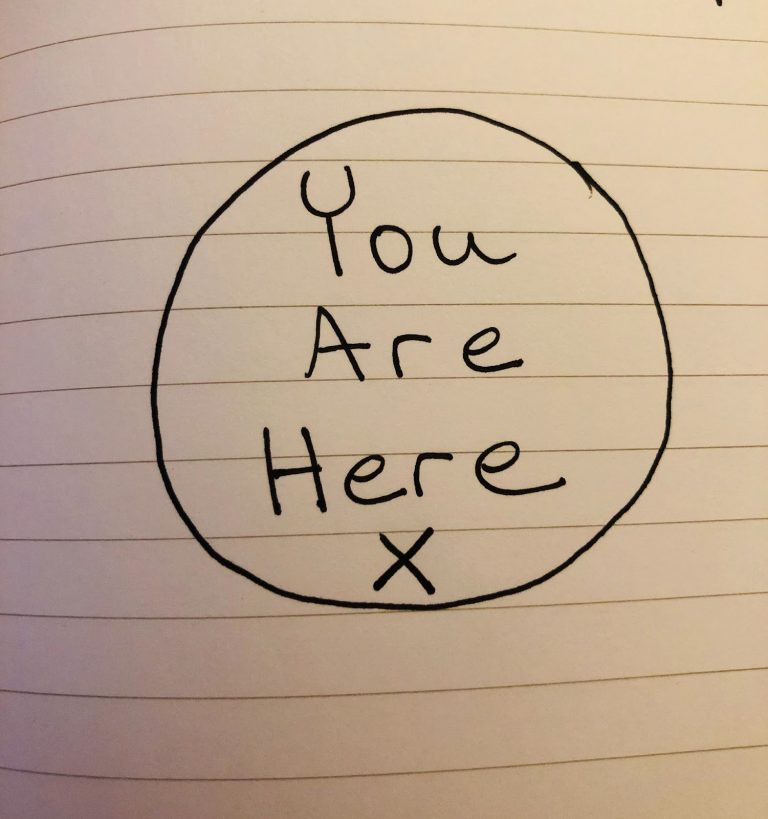It’s difficult to live in a way that doesn’t harm the planet. What would a Regenerative Right Livelihood look like?
By Karryn Olson

Even if you live completely off-grid, grow all of your own food, bike everywhere, and never fly, you are using the internet to read this article, and the internet’s carbon emissions are equivalent to the airline industry.
Ugh.
It’s almost impossible to live one’s daily life without contributing to the great unravelling of the web of life.
It’s also really hard to earn one’s living in ways that aren’t harming our Earth, our life-support system, a living Being.
That’s heartbreaking. And infuriating.
And it’s systemic.
I often reference the systems thinking iceberg, which helps us see that all systems arise from mental models. I’ve worked with several groups to explore the mental models underpinning our current economic system, and to sum up their effects in one word, they end up being “degenerative” —they erode the health of ecosystems, communities, and the beings who live within them.
Like me, you probably often wonder: “How can it be different?”
Today, I’ll share some thoughts about how I believe the simple but profound concept of “right livelihoods” can help shift society towards a more life-honoring economy.
“The idea of ‘right livelihood’ is an ancient one. It embodies the principle that each person should follow an honest occupation, which fully respects other people and the natural world. It means being responsible for the consequences of our actions and taking only a fair share of the earth’s resources.”
– from the Right Livelihood Award: The ‘Alternative Nobel Prize’
This concept arises from the Buddhist “Noble Eightfold Path” and term “right livelihood” was popularized in the 1970s by EF Schumacher’s essay “Buddhist Economics,” and was also included in the book “Small is Beautiful: Economics as if People Mattered.”
In his essay, Schumacher shares that the function of work is threefold:
- “to utilise and develop one’s faculties;
- to enable one to overcome ego-centredness by joining with other people in a common task;
- and to bring forth the goods and services needed for a becoming existence.”
And he states that “…the consequences that flow from this view are endless.”
Indeed. I’ve been re-reading and reflecting on this essay for around 20 years, so I want to share some of my thinking that builds on Schumacher’s, and highlights “right livelihood” as a basic pattern that gives rise to regenerative economies.
- The need to participate in meaningless work in order to earn money to survive is painful for the individual who is aware of their impact, but it is NOT the fault of the individual who is forced to do a meaningless job… it is a glaring indicator of a flawed design of our economy. We can design better economic systems, and we must, in order to defend life on our planet.
- Every person should be able and nurtured to develop to their fullest potential, and to fulfill the human desire to contribute to society. Therefore, meaningful work within a meaningful economy should be held as a universal human right. To be just and equitable, systems that enable people to cultivate their right livelihoods must be co-created and self-determined, not imposed.
- Our current dominant economy feeds on and amplifies consumerist addictions. Instead, the concept of right livelihood helps us detach from materialism and cultivate simplicity in our lives. This completely compatible with (and in today’s frenetic world perhaps necessary for) a high quality of life.
- Right livelihoods are based on nonviolence. Therefore our economic systems must be redesigned to make visible and value the feedback loops that enable us to know if our work or lifestyles are harming our ecosystems and other beings.
- Many right livelihoods can be woven together into local living economies that provide for all Beings in the region, and also steward resources for future generations.
What if, instead of letting young people figure it out on their own, or asking them “What do you want to be when you grow up?” our communities had many deep conversations and rituals that help them discern and follow their right livelihood path based on the concepts above?

It would change everything.
For all of these reasons, I believe that the concepts like “right livelihood” can help us self-organize into regenerative economies.
HAVE YOU HAD ANYONE IN YOUR LIFE who has talked with you in-depth about the profound implications of “right livelihoods” and your role in them? Did this help you, and how?
If not, HOW WOULD YOUR LIFE HAVE BEEN DIFFERENT if you had a community mentoring you to integrate this concept into your life and work?



